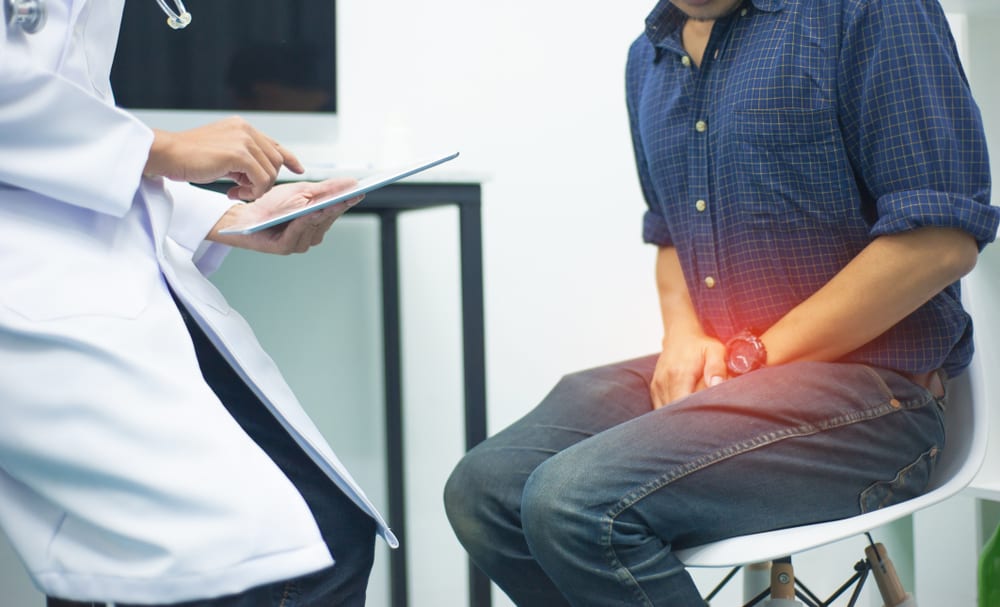Physical Address
304 North Cardinal St.
Dorchester Center, MA 02124
Physical Address
304 North Cardinal St.
Dorchester Center, MA 02124

Prostate cancer (cancer of the prostate) is a cancer of the bladder neck gland and is the most common form of cancer among men. In many cases, prostate cancer can be a harmless condition that does not need to be treated, but in other cases, it can be aggressive cancer with a fatal outcome. It is, therefore, necessary to seek medical care for prostate symptoms.
In prostate cancer, control of cell division has failed so that cells grow rapidly and without control. In malignant prostate cancer, the cells can grow into the surrounding tissue and spread to other parts of the body. It is still unclear why prostate cancer happens in some and not in others, but it has been shown to occur more often in individual families. The risk is higher for men who have more, significantly younger, relatives who are affected. A Scandinavian study showed that 42% of cases were due to heredity.
Around 5,000 new prostate cancer cases are discovered in every year, which accounts for approximately 30% of all cancer cases in men. Prostate cancer rarely occurs in men under the age of 45 but increases with increasing age. 90% of cases are detected after the age of 60. Prostate cancer occurs in 17% of men but is the cause of death in only 3-4%. The frequency and mortality of prostate cancer are, worldwide, highest in Scandinavia.
Also Read: Best Hospitals for Diabetes Care in India
Early in the course of the disease, prostate cancer will usually not cause any problems. As the tumor grows, symptoms similar to the benign enlarged prostate will usually occur. Such symptoms may be:
Otherwise, anemia, fatigue, and weight loss are possible symptoms of cancer. Sometimes cancer does not give signs until it has spread. Prostate cancer most often spreads to the skeleton, and back pain or reduced mobility can be a symptom of prostate cancer in older men, harm your love life use Fildena 100 or Fildena 150 to improve your love life.
Always consult a doctor if you have urination problems, as mentioned above, or pain in the abdomen or back. Such issues will often be due to benign enlarged prostate, but it is essential to get a thorough medical examination.
The first examinations the doctor does are usually:
Also Read: Best Pulse Oximeters in India with a Buying Guide
Research may indicate that a large intake of vegetables, perhaps especially tomatoes and broccoli, may inhibit prostate cancer development. There are supplements with the active ingredient in tomatoes, lycopene, but many believe it is best to eat proper vegetables instead of taking supplements.
According to Relis, individual studies are promising, but the documentation is currently not good enough to conclude. Therefore, the Norwegian Directorate of Health makes no specific recommendations for the prevention of prostate cancer beyond general recommendations for the population when it comes to diet and lifestyle.
When prostate cancer is diagnosed, there are many indications that physical exercise is favorable for life prospects.
Prostate cancer develops differently from person to person. Those who have a kind and slow-growing type of cancer do not always need treatment but are closely followed up by doctors. Treatment of prostate cancer will depend on many factors: PSA value, including what type of tumor it is, how widespread the disease is and how old the patient is. The most common treatment forms are surgery, radiation therapy, and hormone therapy, possibly in combination.
In case of reasonable suspicion of prostate cancer, the patient is referred to the package for prostate cancer.
The patient is followed up with regular check-ups every three months for two years, then every six months. Among other things, they monitor PSA values and take tissue samples. If the disease shows signs of change, treatment is considered.
Surgical removal of the prostate gland is an alternative to a local disease that has not spread to the lymph nodes or skeleton. One can either remove the entire prostate gland or just parts of it. When removing the entire gland, there is a relatively high chance of getting erection problems to cure erection use (up to 70%) or urine leakage (up to 30%). Additional treatment can be radiation or hormone treatment.
Also Read: Importance Health Benefits for Vitamin C
Prostate cancer can be destroyed by radiation with radioactivity. External radiation takes place for seven weeks, where radiation is given five days a week. Radiation can also be used as a palliative treatment for pain caused by spreading to the skeleton. This can cause late side effects such as frequent and loose stools, overactive bladder, and erection problems use Fildena 120 and vigora 100 to improve erection.
Internal radiation (brachytherapy) is short-range radiation that provides an increased dose in the prostate. Is in use at Radiumhospitalet for selected patients. One can give a higher radiation dose without increasing damage to other organs.
A combination of internal and external radiation is in increasing use.
Most types of prostate cancer depend on the male hormone testosterone to develop. One can, therefore, usually inhibit the development of the disease by stopping the body’s production of testosterone or by blocking the effect of testosterone on the cancer cells. This treatment cannot cure prostate cancer but can slow the growth rate and reduce cancerous tumors’ size. Growth is inhibited in 80% and provides adequate relief of, for example, bone pain.